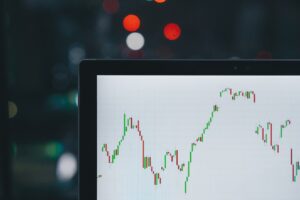Forex trading and stock trading are two popular investment options for individuals looking to generate wealth through the financial markets. Both have their advantages and disadvantages, and understanding these can help investors make informed decisions about which market to participate in. In this article, we will explore the pros and cons of forex trading and stock trading.
Forex trading, also known as foreign exchange trading, involves buying and selling currencies in order to profit from fluctuations in their exchange rates. Stock trading, on the other hand, involves buying and selling shares of publicly traded companies. Both markets offer opportunities for investors to make money, but they also come with their own set of risks. Let’s take a closer look at the pros and cons of each.
Pros of Forex Trading:
1. High Liquidity: The forex market is the largest and most liquid financial market in the world. With an average daily trading volume of over $6 trillion, it provides ample opportunities for traders to enter and exit positions quickly and at their desired price levels.
2. 24/5 Market Access: Unlike stock markets, which have set trading hours, the forex market is open 24 hours a day, 5 days a week. This allows traders to take advantage of global economic events and news that may impact currency prices, regardless of their time zone.
3. Low Transaction Costs: Forex brokers typically charge low transaction costs, known as spreads, which are the difference between the buying and selling prices of a currency pair. This makes it more cost-effective for traders, especially those who engage in frequent trading.
4. Leverage: Forex trading offers the opportunity to trade on margin, which means that traders can control larger positions with a smaller amount of capital. This can amplify both profits and losses, so it is important for traders to exercise caution and use proper risk management techniques.
Cons of Forex Trading:
1. High Volatility: The forex market is highly volatile, meaning that currency prices can fluctuate rapidly and unpredictably. This volatility can lead to significant gains, but it can also result in substantial losses if traders are not careful.
2. Complex Market: Forex trading involves understanding and analyzing multiple factors that can impact currency prices, such as economic indicators, geopolitical events, and central bank policies. This complexity can make it challenging for beginners to navigate the market and make profitable trades.
3. Lack of Regulation: The forex market is decentralized, meaning that there is no central exchange or regulatory body overseeing trading activities. While this provides traders with flexibility and accessibility, it also exposes them to the risk of fraud and manipulation by unscrupulous brokers or market participants.
Pros of Stock Trading:
1. Ownership Stake: When you buy shares of a company, you become a partial owner of that company. This allows you to participate in the company’s growth and profitability through capital appreciation and dividends.
2. Fundamental Analysis: Stock trading is often based on fundamental analysis, which involves evaluating a company’s financial health, management team, competitive advantage, and growth potential. This approach allows investors to make informed decisions based on the underlying value of a company.
3. Diversification: Stock trading provides investors with the opportunity to diversify their portfolios by investing in different sectors and industries. This can help reduce risk by spreading investments across multiple companies and sectors.
Cons of Stock Trading:
1. Market Volatility: Like the forex market, stock markets can be volatile, with prices fluctuating based on various factors such as economic conditions, company earnings reports, and investor sentiment. This volatility can lead to significant gains or losses, depending on the timing of trades.
2. Limited Trading Hours: Unlike the forex market, which operates 24/5, stock markets have set trading hours. This can limit the ability of traders to respond to market events and news outside of these hours.
3. Higher Transaction Costs: Stock trading often involves higher transaction costs compared to forex trading. These costs include brokerage commissions, exchange fees, and taxes, which can eat into profits, especially for frequent traders.
In conclusion, both forex trading and stock trading offer opportunities for investors to generate wealth, but they also come with their own set of risks. Forex trading provides high liquidity, 24/5 market access, and low transaction costs, but it is also highly volatile and complex. Stock trading offers ownership stakes, fundamental analysis, and diversification, but it is subject to market volatility, limited trading hours, and higher transaction costs. Ultimately, the choice between forex trading and stock trading depends on an individual’s risk tolerance, trading style, and investment goals.





